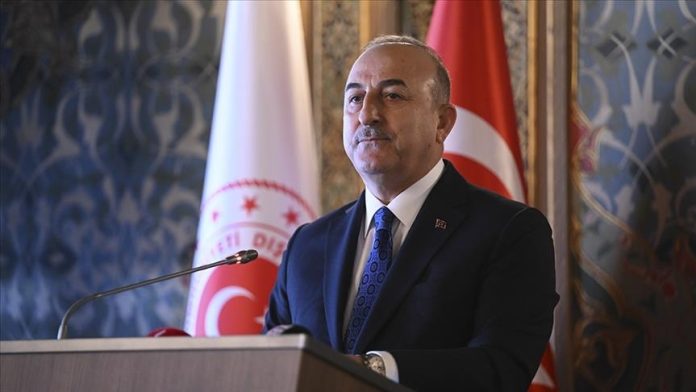Türkiye will continue to protect Turkish Cypriots’ rights and interests in the region’s energy resources, the country’s foreign minister said on Sunday.
“We have protected and will continue to protect the rights and interests of Turkish Cypriots in Cyprus Island and its surroundings over energy resources,” Mevlut Cavusoglu tweeted.
Greece has contested Turkey’s current energy exploration activities in the Eastern Mediterranean, attempting to encircle Turkish maritime territory based on small islands off the Turkish coast.
Türkiye, which possesses the Mediterranean’s longest coastline, has sent out drill ships to explore for energy on its continental shelf, claiming that both Türkiye and the Turkish Republic of Northern Cyprus (TRNC) have rights in the region.
According to Turkish officials, dialogue to fairly share these resources would be a win-win situation for all parties.
The federation solution model, which has been attempted for half a century, is no longer appropriate, according to Cavusoglu, and Türkiye strongly supports the “two-state solution based on sovereign equality.”
Türkiye guaranteed that the TRNC was recognized as a “observer member” of the Organization of Turkic States, he said, adding that it was the first time the TRNC was allowed to an international organization under its constitutional name.
Cavusoglu also expressed support for the reopening of Maras’ beach area, or Varosha in Greek, which had essentially become a ghost town after being cut off from the rest of the world for 47 years.
In October 2020, a piece of the region reopened (approximately 3.5% of its overall area). Maras was abandoned following a 1984 UN Security Council resolution that said that only the town’s original people could resettle there.
– Decades-long squabble
Despite a series of UN diplomatic efforts to seek a comprehensive settlement, Cyprus has been stuck in a decades-long dispute between Greek Cypriots and Turkish Cypriots.
Beginning in the early 1960s, ethnic violence caused Turkish Cypriots to retreat into enclaves for safety.
In 1974, a Greek Cypriot coup aiming at annexing the island prompted Turkey to intervene militarily as a guarantor power to defend Turkish Cypriots from persecution and violence. As a result, in 1983, the TRNC was established.
In recent years, there has been an on-again, off-again peace process, including a failed 2017 proposal in Switzerland under the auspices of guarantor countries Turkey, Greece, and the United Kingdom.
The Greek Cypriot administration joined the European Union in 2004, the same year that Greek Cypriots foiled a United Nations attempt to resolve the long-running conflict.

